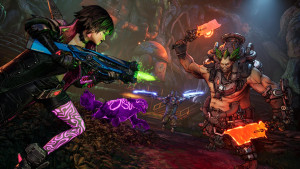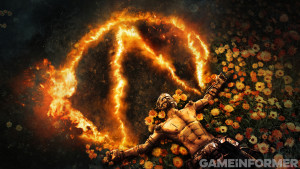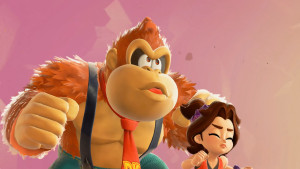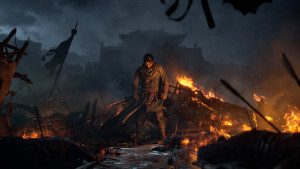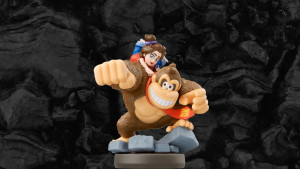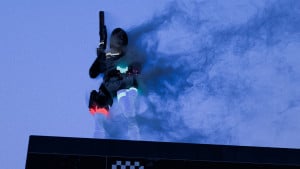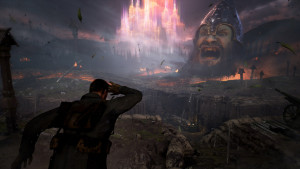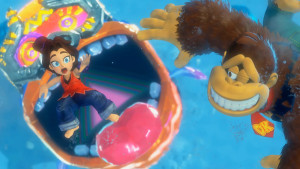Last chance for early bird pricing! Subscribe by June 25th to receive the debut issue
Zelda 25th Anniversary: Remembering The Wind Waker
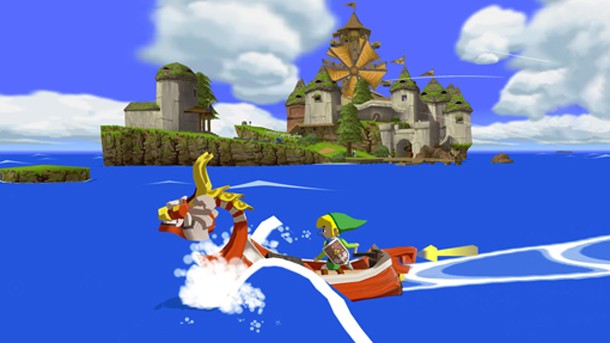
Sometimes it seems as though Nintendo is damned if it does, and damned if it doesn’t. Stay faithful to a game’s roots, and people blast the sequel for being derivative. Take a risk by trying something new, and others cry foul at those changes. With The Legend of Zelda: The Wind Waker, Nintendo pushed the series in a stunning new direction, creating one of the most polarizing entries in the series.
For people anticipating the realistic-looking Link from a GameCube sizzle reel a few years earlier, the wide-eyed, cartoony interpretation of the hero that Nintendo revealed at its 2002 E3 presentation was a shock. GameCube defenders had been fighting off charges that the system was “kiddie” since its launch, and Toon Link was a colorfully wrapped artillery shell for the other factions of console warriors.
Personally, I was thrilled to see that the series was getting overhauled. The so-called Realistic Link was a safe direction to explore, but that’s exactly what it was: safe. I know some people never made it past Wind Waker’s distinctive art direction, and I honestly feel sorry for them. The game did more than reskin Hyrule and its inhabitants. As much as I love other games in the series, Wind Waker is the one that most made me feel like I was actually exploring an amazing new world.
From the cinematic opening, which told Link’s story through tapestries, to the moment I set foot on Outset Island, I was sold. Everything about the game felt vast and epic. Ocarina of Time’s Hyrule Field was large, but Epona’s speedy gallop shrunk it down to a less impressive scale. In contrast, the Great Sea spread out as far as the eye could see (or the GameCube could render), and I felt encouraged to explore at my own leisure. I loved seeing a speck in the horizon and sailing my ship over to see what it was. Admittedly, I loved having to constantly babysit the wind’s direction slightly less, but the rewards offset the inconvenience.
The game’s cel-shaded world masks a story of loss and regret, hope and redemption. Games routinely stir up my emotions. I laugh at well-written jokes, freak myself out in survival-horror games, and I’m not above moments of controller-throwing rage. Few games, however, make me sad. I was overcome with a feeling of melancholy when my journey eventually took me to Hyrule Castle. The once-majestic place I’d visited times before was now flooded and in stasis. That moment, along with the rest of the game, is elevated by one of my all-time favorite game soundtracks.
I’m not really a proponent of gamer culture. When I see someone baking a game-related cake or stenciling a Space Invader on the side of their house, I shudder a little bit. And don’t get me started on video game-themed weddings. I realize that I should be embracing this kind of nerdy stuff because, well, I’m kind of a nerd, but I can’t abide by this kind of behavior. Games are fun, but there’s more to life than jabbing away at a controller all the time. That said, I’m also a hypocrite of the highest order.
When my wife and I were planning our wedding, we ran into a problem. We couldn’t walk down the aisle accompanied by the soothing sounds of crickets chirping, so we had to come up with a song. Something simple. Something pleasant. Something fun. I ran dozens of candidates by her, and each was summarily rejected. Then I found the perfect song.
Weeks later, my soon-to-be bride and I walked past our loved ones and important friends as the theme from The Legend of Zelda: The Wind Waker played. It’s a great song, and only one of my alpha-nerd friends recognized it. To this day, my parents refer to it as “that nice Irish song.”
Whew. My cover remains intact.
This essay originally appeared in Game Informer issue #222.
